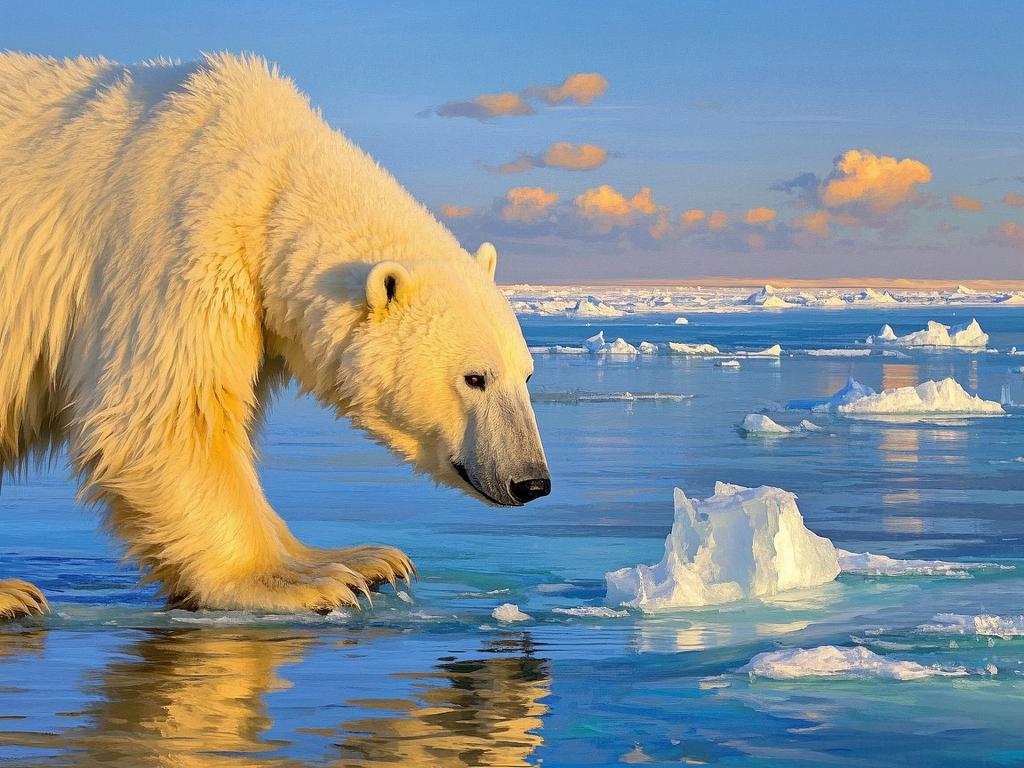
# The Frozen Tundra of the Arctic Circle: A Cold Wilderness in Crisis
The Arctic Circle, that vast expanse of frozen tundra, is no longer just a remote and desolate wilderness. It's a stage where a drama of ecological crisis is playing out with far-reaching consequences for our planet.
The Arctic has long been a symbol of resilience, with its frigid landscapes surviving the test of time. But now, it's facing an onslaught like never before. The ice that has been a defining feature of this region for millennia is melting at an alarming rate. Scientists have been sounding the alarm bells, and the numbers are staggering. In the past few decades, the Arctic sea ice extent has decreased by a mind-blowing [X]%! That's not just a statistic; it's a clear indication of a rapidly changing climate.
This melting ice is not just a visual spectacle of disappearing white landscapes. It has profound implications for the global climate system. The Arctic ice acts like a giant mirror, reflecting a significant portion of the sun's radiation back into space. As the ice melts, more of the sun's heat is absorbed by the dark ocean waters, creating a positive feedback loop. This, in turn, accelerates the warming of the planet, affecting weather patterns around the world. It's like a domino effect that starts in the Arctic and ripples across the globe.
But the Arctic is not just about ice. It's a unique ecosystem that is home to a plethora of fascinating species. Polar bears, those majestic creatures, are now in serious jeopardy. Their habitat is shrinking rapidly as the ice they rely on for hunting and resting disappears. The number of polar bears is estimated to have declined by [X]% in the past few decades. These magnificent beasts are on the brink of extinction, and it's a stark reminder of the fragility of our planet's biodiversity.
Walruses, too, are facing a tough battle. They depend on the ice floes for hauling out and resting. With the diminishing ice, they are forced to crowd onto smaller and smaller areas, leading to overcrowding and increased competition for space. This has a cascading effect on their health and survival.
The Arctic ecosystem is a delicate web of life, and when one strand is pulled, the whole web starts to unravel. The melting ice also affects the food chain. Phytoplankton, the base of the Arctic food pyramid, depends on the cold and nutrient-rich waters that are now being disrupted. As the ice melts, it changes the ocean circulation patterns, reducing the upwelling of nutrients. This has a knock-on effect on the entire ecosystem, from the smallest organisms to the largest predators.
It's not just the wildlife that is suffering. The indigenous communities of the Arctic are also being deeply impacted. These communities have a unique relationship with the land and sea, relying on hunting, fishing, and gathering for their livelihoods and cultural identity. But with the changing climate, their traditional ways of life are under threat. The ice that once provided a stable platform for hunting is now unpredictable, and the fish populations are shifting. Their cultural heritage, passed down through generations, is at risk of being lost.
From a political and economic perspective, the Arctic is also heating up. The region is rich in natural resources, including oil, gas, and minerals. As the ice melts, it becomes more accessible for exploration and extraction. This has led to a scramble among countries to stake their claims in the Arctic. Russia, for example, has been increasing its presence in the region, building new infrastructure and conducting more extensive research.
This newfound interest in the Arctic's resources has both economic opportunities and potential environmental disasters. The extraction of oil and gas in such a fragile environment could have catastrophic consequences for the ecosystem. Spills, leaks, and the disruption of the natural environment during exploration and production could be irreversible. It's a classic case of short-term gain versus long-term sustainability.
We, as global citizens, cannot sit back and watch this crisis unfold. We need to take action now. It's time to reduce our greenhouse gas emissions and transition to a more sustainable energy future. This is not just about saving the Arctic; it's about saving our planet. We need to support policies and initiatives that prioritize conservation and sustainable development in the region.
Let's not forget the power of individual actions either. Simple things like reducing our energy consumption, using public transportation, and recycling can make a big difference. We can also raise awareness about the importance of the Arctic and the impact of climate change on this unique ecosystem. By doing so, we can inspire others to take action and be part of the solution.
The Arctic Circle is in crisis, but it's not too late. We have the power to turn the tide and ensure that this frozen tundra remains a vital part of our planet's ecological balance. Let's act now before it's too late and the Arctic becomes nothing but a distant memory of a once-thriving wilderness.

